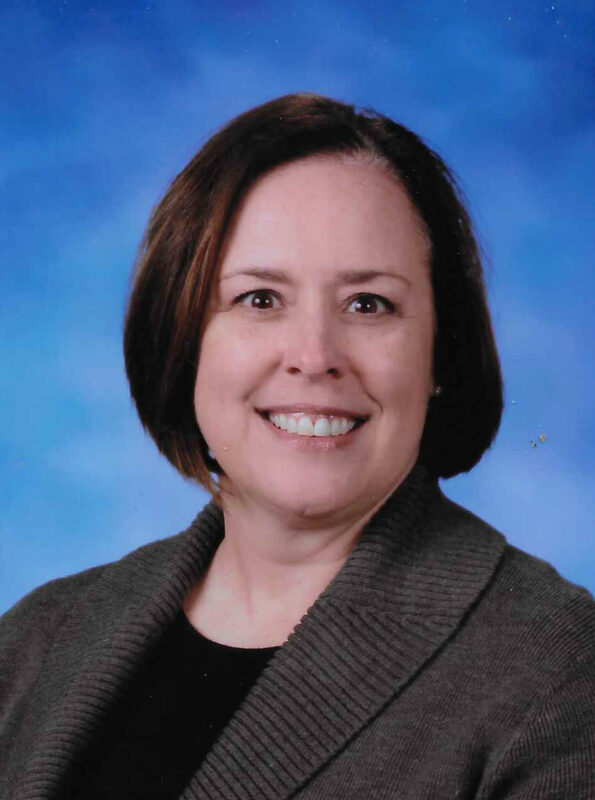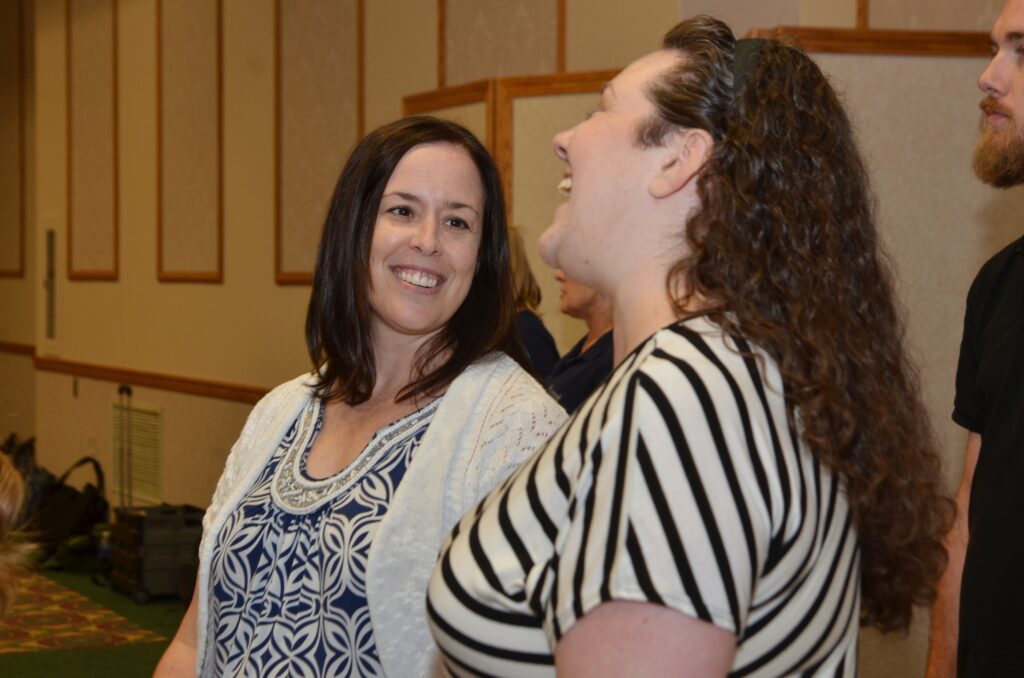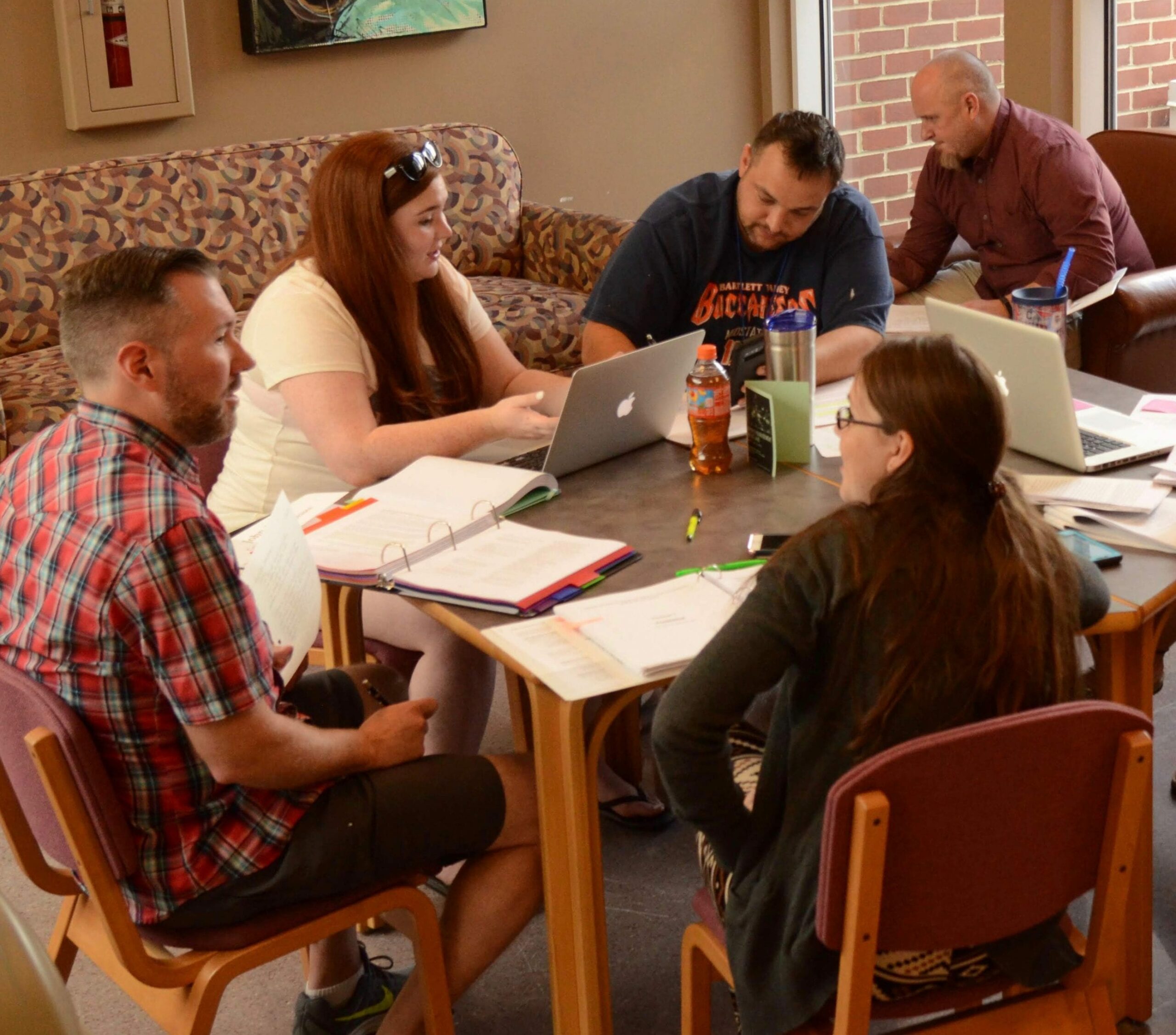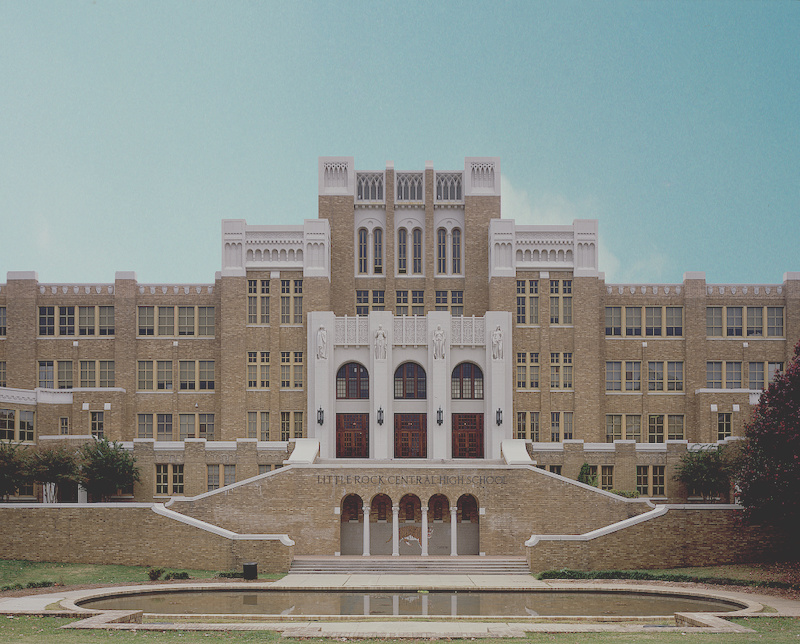Meet Our Teachers
Amber McMunn

A desire to see the world outside of Texas led Amber McMunn to do her undergraduate work at Brigham Young University. Love of history determined her choice of major. An interest in law led to her first job, as a legal assistant. A few years in this job convinced McMunn that it was not the minutiae of law, but historical and political discussion that fascinated her. Still, she stayed with the work, honing her writing skills, until the partners’ decision to dissolve the firm pushed her to make a change. After earning an alternative teaching certification at her local community college, she began teaching government at Eisenhower High School in Houston. She found she enjoyed helping adolescents launch successful lives as citizens.
A few years into her new career, an administrator asked her, “Have you thought about earning your Master’s degree, so that you might teach dual enrollment courses?” As she looked around for a program, a card arrived in the mail from Ashland University. It offered her a free course in the summer residential Master of Arts in History and Government (MAHG) program. She traveled to Ohio to take Professor David Foster’s course on The Federalist, staying an extra week for Professor Eric Sands’ course on the Supreme Court.
The Total History Immersion of MAHG

“I thought that even if I hated the program, I would learn things I could use in my government classes. But I got to Ashland and loved the program. I met teachers from around the country who were awesome. They encouraged me to apply for the James Madison Memorial Foundation Fellowship,” a grant awarded yearly to one social studies teacher from every state. Teachers often apply repeatedly before winning the fellowship. With recommendations from a fellow teacher in the MAHG program (Heather Loeschke of Minnesota) and Professor Jeremy Bailey (whose online course she’d taken), McMunn succeeded at her first try, in 2013, and immediately enrolled in MAHG as a degree-seeking student.

“The online courses were very good. But I really loved MAHG’s summer residential program. It is a total history immersion. Everyone attending was as much of a history nerd as I was.” McMunn and her fellow teachers talked history at breakfast, lunch and dinner. Adjusting to the intense pace of the readings was challenging, and at first McMunn felt nervous to be a student again, two decades after finishing her BA, subject to a professor’s grades. “But the professors are very approachable. You can talk with them to hash out what you’re thinking. Also, study groups form among teachers in the program. You find your people who you can bounce ideas off of.”
Graduate Credits Lead to New Teaching Role
With the graduate credits she began earning, McMunn could begin teaching a collegiate-level International Baccalaureate history course at Eisenhower. She also became more comfortable leading discussions of primary documents in her own classroom. Winning the teacher of the year award at Eisenhower in 2013, she explained her career goals. “I try to create a classroom conducive to learning, where students can be engrossed in a subject, expand their knowledge, and respect others’ opinions.”
McMunn completed her MAHG degree in 2015, earning a Chairman’s Award for her cumulative exam performance.
Today McMunn teaches the International Baccalaureate Course in the History of the Americas at Humble High School in Houston. The two-year program gives teachers the latitude to choose their themes and eras. McMunn designed her version of the course to cover key issues in late nineteenth and twentieth century American history. During junior year, students begin by studying the Progressive Era, the rise of the United States as a global power, and World War I. They spend second quarter studying World War II. They divide the spring semester between the Civil Rights Movement and the Cold War. As seniors, students review this history, this time putting the American experience into a global context.
They consider the causes and effects of twentieth century wars: for example, how unresolved issues from the first World War led to the second, how civil war in China unfolded in the wake of Japanese occupation, and how Soviet occupation of Eastern Europe resulted from World War Two. They do a case study comparing the civil rights movement in the US to the protests that ended apartheid in South Africa. They revisit the Cold War, studying the Nicaraguan revolution in particular.
History with Personal Relevance
“I focus on the issues that most interest my students and most interest me—where my content knowledge is. I’ve always loved the World War II era; my grandmother was a “Rosie the Riveter,” working in ship construction here in Houston during the war. Also, I’m a docent at our local Holocaust Museum, and each year I take my students there for a tour.”

Humble High School’s student population is about 55% Latino and 40% African American. Since many of McMunn’s students come from families who immigrated to the US from Latin America, they are interested in the interrelated histories of North America and Latin America. Aware of civil wars in their families’ countries of origin, they are curious about the relationship between those wars and the Cold War. Watching Russia’s invasion of Ukraine, they see how Cold War history continues to affect current events.
“Since many of my students are members of minority groups, they can also relate to the civil rights issues.” They compare and contrast the unrest over civil rights in the US to domestic unrest in Latin America and elsewhere during the Cold War era.
Helping Students Claim Their Voices
Students in McMunn’s IB course are highly motivated, yet need help cultivating their critical reading and thinking skills. Most of all, they need encouragement to claim and defend their own opinions. Before taking McMunn’s class, “most of them have been told what things mean.” McMunn gives them excerpts of primary documents to decode and interpret. “We read many documents together. We look at an excerpt, and I ask, ‘Who wants to take a stab at what this means?’ At first, they are really hesitant. The vocabulary may be new to them.
“In MAHG, I learned ways of encouraging students to venture interpretations. When teachers made comments that were off base, professors would say, ‘I see why you might think that. But take a look at these words in the text.’ In MAHG, we were never made to feel bad about what we said during discussion. We were treated as equals and invited to converse together. I try to respond to my students in the same way.”
Building Critical Thinking Through Research Questions
The IB curriculum requires students to complete research papers, and learning “how to draft a decent research question” becomes a big focus of the course. Students must ask questions without obvious answers. During study periods and after school, McMunn spends a great deal of time with students helping them hone their research topics. “Your question cannot be, ‘How significant to the Civil Rights movement was Martin Luther King?—because there’s no doubt about his significance.’ We go round and round trying out workable questions.
“This summer I’ll be spending time experimenting with Chat GPT, to see if students might use it to generate research questions. My colleagues and I hope that if we use this new technology in a proactive way, students won’t be tempted to use it to write their essays. But I don’t worry too much about that,” McMunn added. “I have these students for two years. I can tell whether the papers they turn in sound like their own voices.”
What Students Learn
Although not all students finish McMunn’s course having earned college credit, 85% of them do—an excellent record for a Title 1 school. “But even if they don’t get credit, I know that they have learned a great deal. They’ve learned history that helps them understand how we got to where we are today. And they have considered it from a variety of perspectives. In this, I’ve been helped by the TAH core document collections.” It would take McMunn a lot of time to track down documents from groups who are often underrepresented in the commonly available resources. The professors editing the CDC series—many of them professors McMunn studied under in MAHG—have included the perspectives of women and minorities.
“All these documents make kids think. Whether or not they remember all of the content that I teach them, if they’ve learned how to think for themselves, and understand what they’re reading, I’ll consider myself successful.” They’ll be ready to launch successful lives as citizens.
